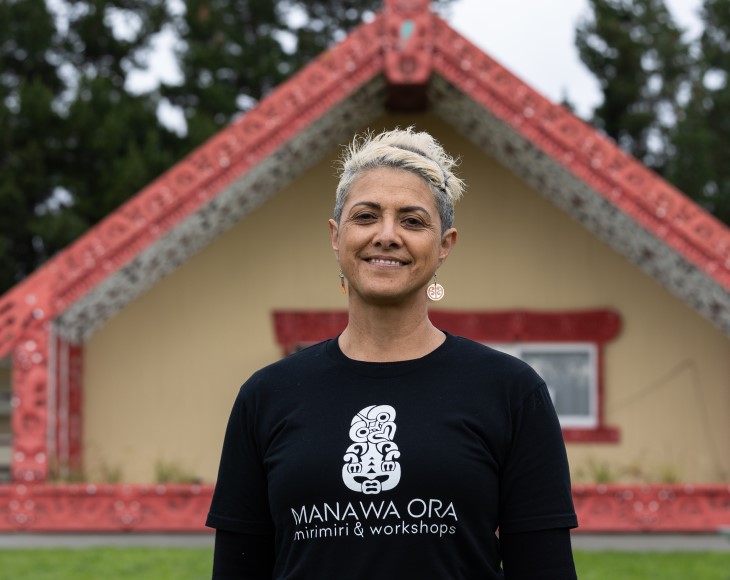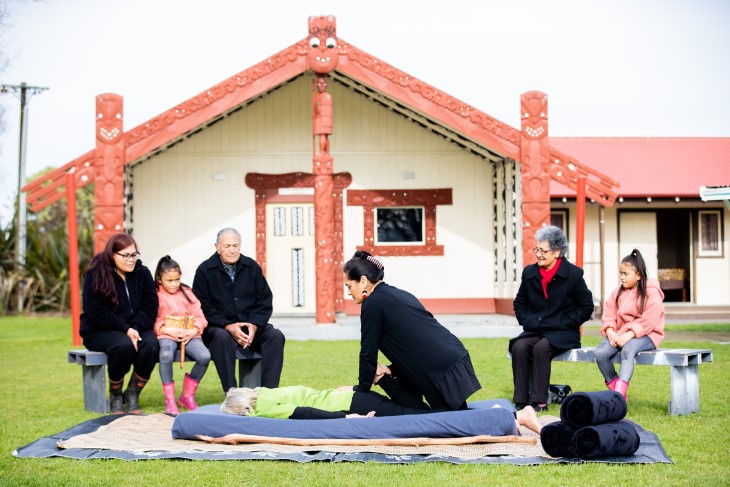Rongoā Māori Conference: ‘An opportunity for us all to learn and grow’
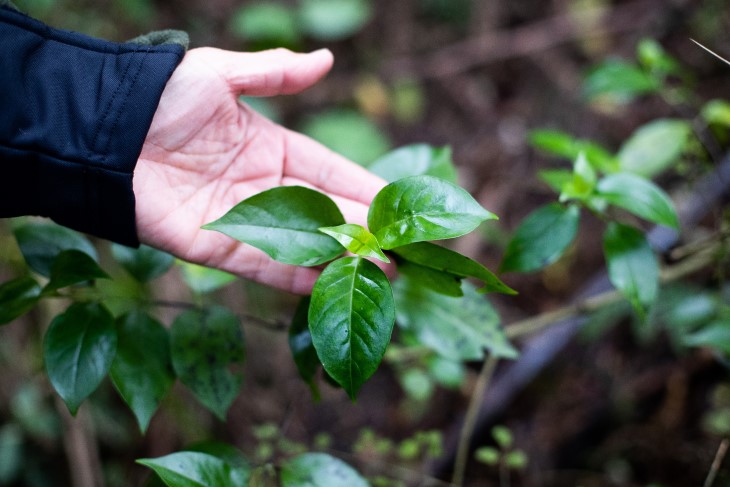
The inaugural ACC Rongoā Māori Conference will take place in Rotorua on 22-23 May, bringing together practitioners from all over the motu to build relationships and learn.
Practitioner Ngaire Khan says it’s a huge honour for Rotorua to host the inaugural Rongoā Māori Conference in May.
The 54-year-old was born and bred in Rotorua (Ngāti Whakaue, Tūhourangi Ngāti Wāhiao) and says it will be a special moment for her and her colleagues when the pōwhiri opens proceedings on 21 May.
“That’s going to be epic,” says Ngaire, who’s been a rongoā Māori practitioner since 2021.
“The conference is the first of its kind. It puts tangata whenua at the centre of the work here in Rotorua as the host of this event.
“It’s going to be a huge moment to have a national government entity, ACC, here and reflecting on the great progress we’ve all made across the motu. It’s a huge honour for us to have this event in our hometown.”
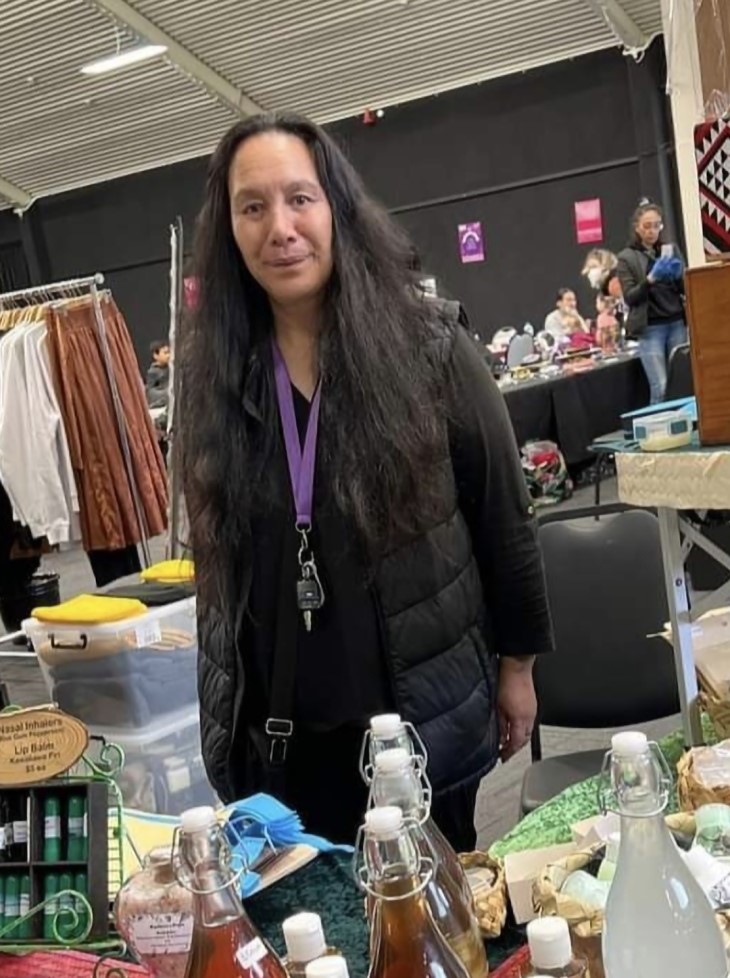
Rotorua-based rongoā Māori practitioner Ngaire Khan.
A celebration of traditional Māori healing
Rongoā Māori is traditional Māori healing. It includes mirimiri and romiromi (bodywork), whitiwhiti kōrero (support and advice) and karakia (prayer).
The ACC Rongoā Māori Conference is a celebration of traditional Māori healing and an opportunity for collaboration to support positive health outcomes for whānau and hapori Māori (Māori communities).
The two-day conference will bring together rongoā Māori practitioners and health providers within te ao rongoā (the rongoā community) to whakawhanaunga (build relationships) and grow understanding of traditional Māori healing and its place in Aotearoa New Zealand’s health sector.
ACC is supporting the event as part of its commitment to growing access to and awareness of rongoā Māori across the health sector.
“We want to bring together our health providers and rongoā practitioners to see how we can work together to meet all the needs of our communities,” says Eldon Paea, ACC’s Head of Māori Health Partnerships.
Ngaire is looking forward to collaborating with her rongoā colleagues.
“It’s going to be a great time to āta noho (sit) and āta whakarongo (listen). A time to connect and build positive relationships with other practitioners.”
She will also relish the opportunity to connect with members of the wider health sector. As a practitioner of rongoā Māori, she says they’re there to koha (gift) some knowledge of their holistic approach.
The significant growth of rongoā Māori
Ngaire says the numbers of rongoā Māori practitioners in her rohe (region) is on the rise.
Every weekend she has a stall at the local Rotary Kuirau Park Market and uses the opportunity to hand out pamphlets about ACC’s Rongoā Māori service, so people know it’s a healing option when they’re injured.
“A lot of people have no idea rongoā Māori is an option for them – and there’s a lot of people out there who aren’t getting the help and support they need.”
She says the need to emphasise awareness of the availability of rongoā Māori through ACC is imperative.
ACC has been offering rongoā Māori as a rehabilitation option since June 2020 and the growth in that time has been significant.
Ngaire describes the support of ACC for rongoā Māori as a ‘turning point’ for traditional healing and wellbeing.
“Offering rongoā as a rehabilitation service is part of our continuing efforts to deliver equity for Māori,” Eldon says.
“It presents injured Māori, and all New Zealanders, with more choice in their recovery options, and is a positive step towards delivering equity for tangata whenua.”
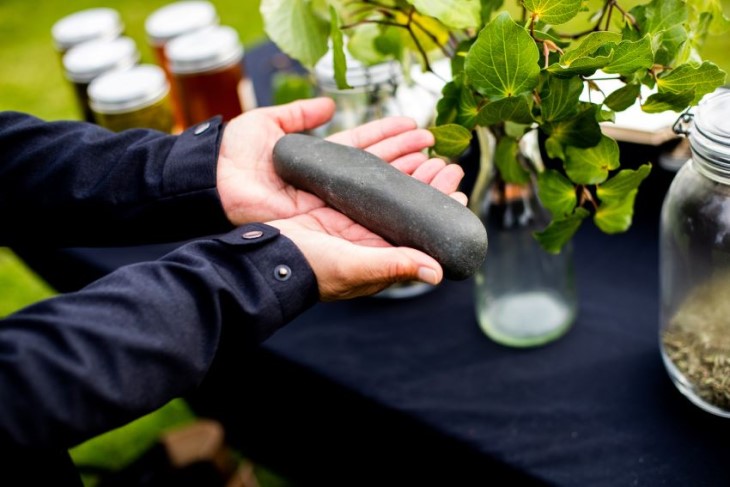
Addressing inequities in healthcare
ACC research shows Māori are more likely to sustain a serious injury than non-Māori, but less likely to make an injury claim.
Māori clients generally account for 12.5 per cent of new claims volumes annually but account for 16.7 per cent of the population.
ACC data shows rongoā Māori claim volumes almost doubled in the 12 months to January 2024, with 6,016 claims using rongoā in the year ended January 2024.
And it’s not just Māori who are accessing rongoā Māori services – 41 per cent of ACC kiritaki (clients) accessing rongoā are non-Māori.
For Ngaire, she’s helped people from all walks of life with rongoā Māori – the likes of rangatahi (youth), kaumātua and kuia, and people from many countries, including Pacific whānau.
“It doesn’t matter who you are or where you’re from, rongoā Māori will tautoko (support) your wellbeing towards rehabilitation,” she says.
“The results from kiritaki are phenomenal and it’s important to do this kanohi ki te kanohi (face to face), so confidentiality is paramount.
“The importance of this conference is that it’s a significant milestone in acknowledging the acceptance of rongoā Māori, now being endorsed as a healing option by ACC.”
Rongoā Māori Conference
22 – 23 May
Energy Events Centre, Rotorua
More information is available on the conference website.



